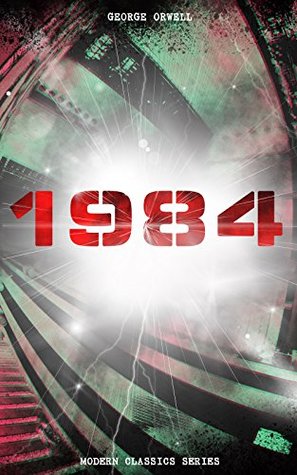More on this book
Community
Kindle Notes & Highlights
You had to live—did live, from habit that became instinct—in the assumption that every sound you made was overheard, and, except in darkness, every movement scrutinized.
the Ministry of Truth, which concerned itself with news, entertainment, education, and the fine arts; the Ministry of Peace, which concerned itself with war; the Ministry of Love, which maintained law and order; and the Ministry of Plenty, which was responsible for economic affairs. Their names, in Newspeak: Minitrue, Minipax, Miniluv, and Miniplenty.
A hideous ecstasy of fear and vindictiveness, a desire to kill, to torture, to smash
faces in with a sledge hammer, seemed to flow through the whole
Thoughtcrime, they called it. Thoughtcrime was not a thing that could be concealed forever. You might dodge successfully for a while, even for years, but sooner or later they were bound to get you.
In the vast majority of cases there was no trial, no report of the arrest. People simply disappeared, always during the night. Your name was removed from the registers, every record of everything you had ever done was wiped out, your one-time existence was denied and then forgotten. You were abolished, annihilated: vaporized was the usual word.
Nothing was your own except the few cubic centimeters inside your skull.
Now that he had recognized himself as a dead man it became important to stay alive as long as possible. Two fingers of his right hand were inkstained.
And if all others accepted the lie which the Party imposed—if all records told the same tale—then the lie passed into history and became truth. "Who controls the past," ran the Party slogan, "controls the future: who controls the present controls the past."
His mind slid away into the labyrinthine world of doublethink. To know and not to know, to be conscious of complete truthfulness while telling carefully constructed lies, to hold simultaneously two
opinions which canceled out, knowing them to be contradictory and believing in both of them, to use logic against logic, to repudiate morality while laying claim to it, to believe that democracy was impossible and that the Party was the guardian of democracy, to forget whatever it was necessary to forget, then to draw it back into memory again at the moment when it was needed, and then promptly to forget it again, and above all, to apply the same process to the process itself—that was the ultimate subtlety:
consciously to induce unconsciousness, and then, once again, to become unconscious of the act of hyp...
This highlight has been truncated due to consecutive passage length restrictions.
The past, he reflected, had not merely been altered, it had been actually destroyed.
All history was a palimpsest, scraped clean and reinscribed exactly as often as was necessary. In no case would it have been possible, once the deed was done, to prove that any falsification had taken place.
It seemed to him that he knew instinctively who would survive and who would perish, though just what it was that made for survival, it was not easy to say.
to wear an improper expression on your face (to look incredulous when a victory was announced, for example) was itself a punishable offense. There was even a word for it in Newspeak: facecrime, it was called.
Until they become conscious they will never rebel, and until after they have rebelled they cannot become conscious.
They are then overthrown by the Middle, who enlist the Low on their side by pretending to them that they are fighting for liberty and justice. As soon as they have reached their objective, the Middle thrust the Low back into their old position of servitude, and themselves become the High.
From the point of view of the Low, no historic change has ever meant much more than a change in the name of their masters.
inequality was the unalterable law of human life.


